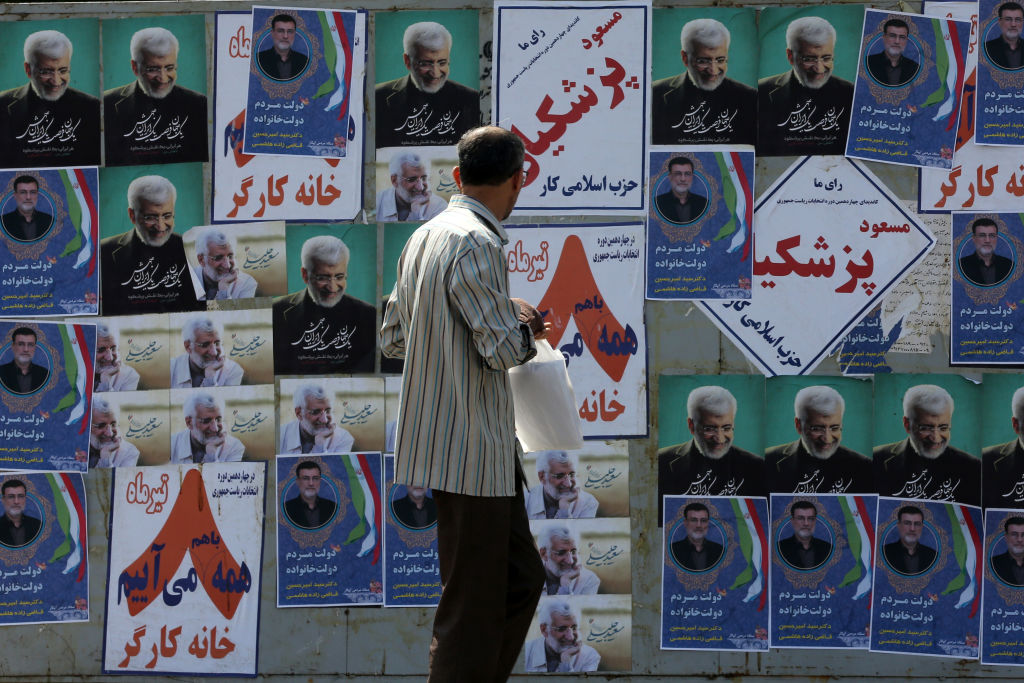SEOUL - Protesters have been rallying in front of the presidential residence to support or block authorities from carrying out the warrant to arrest suspended President Yoon Suk Yeol in recent days.
But the protests have started to bother residents of Hannam-dong, Yongsan-gu, where the presidential residence is located, as well as workers used to commuting through the area.
The Seoul Metropolitan Government announced on Jan 7 that it will request the police’s active cooperation to minimise public inconvenience and respond to any occupations of the road.
“We plan to actively seek cooperation from the police and take all possible measures within the city’s authority to protect citizens and minimise traffic disruptions, as the inconvenience to citizens caused by illegal road blockages in areas like Hannam-ro has continued,” the city said in a statement.
The city also plans to lodge complaints with investigative agencies against any groups involved with the disruption of traffic.
The Seoul Metropolitan Government will also work with the National Police Agency, traffic management organisations and other relevant bodies to implement effective measures to lessen the impact of the protests. These include rerouting city buses, having subways skip stops near protest sites and providing real-time traffic updates.
Mr Lee Sang-hun, an electronics company employee in his late 30s, voiced his frustration about the traffic caused by the protests.
His commute, which takes him through Hannam-dong, has been significantly delayed due to those demonstrating for and against Mr Yoon’s arrest in front of the presidential residence, which occupy up to four of the road’s 10 lanes.
Mr Lee said he had to take a detour, which extended his travel time by 30 to 40 minutes both in the morning and evening.
“I understand the reasons behind the ongoing rallies, but they have no reason to make ordinary citizens suffer. I personally think a protest that affects another victim cannot be justified. I am sure there are more people (than me) who are irritated by the rallies paralysing the traffic,” Mr Lee told The Korea Herald on Jan 6.
Another commuter who wished to be identified only as Mr Yoo, said he made a complaint at the Yongsan-gu Office, as he was stuck on the bus for almost an hour trying to pass the area near the presidential residence, according to local reports.
“Is Yongsan-gu Office not concerned about the people? Even if there are protests, the bus lines need to run,” he said.
According to the local reports, some Hannam-dong residents have gone out of town to get a break from the loud rallies.
“As the rally noise featuring loud speakers continued past midnight, I had to wear my noise-cancelling headphones,” a resident was quoted as saying by local daily Maeil Business. “And some people said they reserved a hotel out of town and stayed there,” he said.
The Instagram post of an anonymous individual who identified himself as a noodle restaurant owner in Hannam-dong, went viral for saying he wanted to “shoot to death” the protesters.
“The rallies are so loud in the day and night. It is making me crazy. Why are those supporting Yoon and those calling for his arrest holding rallies in Hannam-dong? Do it somewhere else, like at the open square or something,” the comment read.
Some 500 reports were made to the 112 emergency hotline between 6pm on Jan 3 and 5am on Jan 4, when the rallies grew bigger after the investigative authorities aborted their attempt to arrest Mr Yoon, blocked by a human barricade of Presidential Security Service guards and others. A total of 360 noise and 50 heavy traffic complaints were reported to the police from areas near the presidential residence, according to Maeil Business, quoting police reports.
To minimise public inconvenience from excessive rally noise, especially near residential areas, the police strengthened noise limits under the Assembly and Demonstration Act in 2024.
These actions lowered the decibel limit by 10 decibels, from 60 to 50 decibels between sunset and midnight, and 55 to 45 decibels between midnight and 7am. According to the National Noise Information System, 50 decibels is the level of noise that can be measured in a quiet office.
The police said they deployed some 2,700 personnel to the rally sites, to prevent potential clashes between the opposing groups of protestors on Jan 3, but they were not able to reduce rally noise.
The police reported four cases of assault of its personnel at rally sites on Jan 5. THE KOREA HERALD/ASIA NEWS NETWORK
Join ST's Telegram channel and get the latest breaking news delivered to you.

 By The Straits Times | Created at 2025-01-08 02:29:59 | Updated at 2025-01-08 20:23:24
18 hours ago
By The Straits Times | Created at 2025-01-08 02:29:59 | Updated at 2025-01-08 20:23:24
18 hours ago








